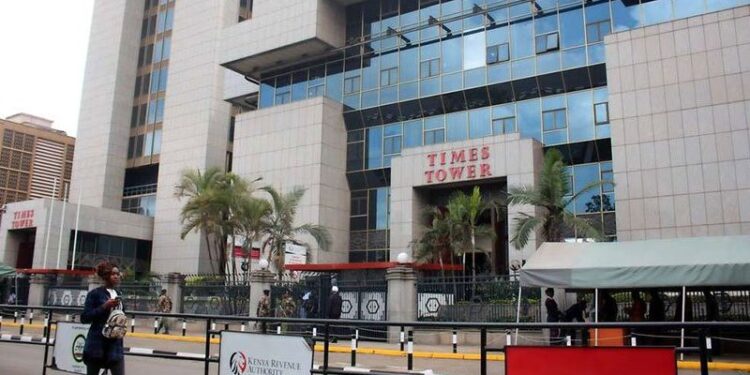The Kenya Revenue Authority (KRA) has appointed Mr. George Obell, MBS, as the Commissioner for the Micro and Small Taxpayers Department (MST), effective November 1, 2025. The appointment is part of KRA’s broader strategy to strengthen institutional capacity, enhance taxpayer services, and support inclusive economic growth through improved engagement with small and medium-sized enterprises (SMEs).
Mr. Obell has been serving in an acting capacity since the establishment of the department on March 1, 2025. His confirmation follows months of structural consolidation within KRA as the Authority continues to implement its transformation agenda under the “KRA 8th Corporate Plan,” which prioritizes tax administration modernization, digital innovation, and taxpayer segmentation.
A Veteran in Tax Administration
With over 28 years of experience in tax administration, Mr. Obell brings extensive technical and strategic expertise to his new role. Before his appointment, he served as Deputy Commissioner for the Medium Taxpayers Office (MTO) and previously as Deputy Commissioner for the East & South of Nairobi (E&SON) Tax Service Office.
During his tenure in these roles, he led major tax modernization projects that have reshaped how KRA engages with taxpayers. These included the rollout of electronic invoicing systems, the adoption of advanced data analytics for compliance monitoring, and the use of risk-based audit approaches to enhance efficiency and fairness in tax administration.
KRA, in its statement announcing the appointment, noted that Mr. Obell’s leadership has been instrumental in driving digital transformation across key operational areas.
“Mr. Obell’s experience and proven record in strategic leadership will be pivotal in strengthening the Micro and Small Taxpayers Department as a driver of compliance and inclusivity in Kenya’s tax ecosystem,” KRA said in a statement.
Leading a New Department for Small Businesses
The Micro and Small Taxpayers Department was established earlier this year as part of KRA’s restructuring program to provide specialized attention to Kenya’s micro and small enterprises (MSEs)—a segment that accounts for the majority of businesses in the country but has historically been underrepresented in formal tax systems.
The department’s creation aligns with government policy under the Bottom-Up Economic Transformation Agenda (BETA), which emphasizes empowering small businesses through access to markets, financing, and formalization.
KRA has stated that the MST Department will focus on simplifying tax processes, improving digital service delivery, and promoting voluntary compliance through education and outreach programs tailored to small enterprises.
“Small businesses form the backbone of Kenya’s economy, and ensuring they receive the right support is critical to sustainable growth,” said a KRA official familiar with the department’s formation. “Mr. Obell’s appointment comes at a time when the Authority is strengthening trust-based compliance strategies, making it easier for small traders to register, file, and pay taxes.”
Regional and International Expertise
Beyond his experience at KRA, Mr. Obell plays a prominent role in regional tax policy development. He currently serves as Chair of the African Tax Administration Forum (ATAF) VAT Technical Committee, where he contributes to shaping tax harmonization and capacity-building initiatives across the continent.
His areas of expertise include digital taxation, transfer pricing, Base Erosion and Profit Shifting (BEPS), tax audits, and Exchange of Information (EOI)—fields that have become increasingly important as Kenya adapts its tax framework to the evolving digital and cross-border economy.
Colleagues describe him as a results-driven leader who combines technical acumen with a collaborative leadership style. “George Obell is known for his commitment to reform and professionalism,” said a senior tax policy expert. “His ability to balance compliance enforcement with taxpayer facilitation will be key to expanding Kenya’s revenue base without stifling enterprise.”
Recognition and Academic Background
In recognition of his contribution to Kenya’s fiscal reforms, Mr. Obell was awarded the Moran of the Order of the Burning Spear (MBS) by the President of Kenya for distinguished service in public administration.
He holds a Master of Business Administration (MBA) and a Bachelor of Laws (LL.B.) from the University of Nairobi, as well as a Bachelor of Science in Accounting from the United States International University (USIU)–Africa. He is also a member of the Institute of Certified Public Accountants of Kenya (ICPAK).
Strengthening Service Delivery and Compliance
KRA’s Board and Management have expressed confidence that Mr. Obell’s appointment will help drive a more responsive and inclusive tax system for Kenya’s growing MSE sector. The Authority emphasized that the MST Department will serve as a “gateway” for formalizing small businesses, simplifying compliance, and expanding the tax base.
Under his leadership, the department is expected to implement several strategic initiatives, including:
- Expanding digital tax tools such as mobile-based filing and payment platforms.
- Enhancing taxpayer education and outreach in informal markets and rural areas.
- Developing simplified compliance frameworks for small and seasonal enterprises.
- Collaborating with county governments and business associations to align tax policies with local economic realities.
“The Micro and Small Taxpayers Department is a critical pillar in our modernization strategy,” said a statement from KRA’s management. “With Mr. Obell at the helm, we are confident of achieving our goal of building a taxpayer-centric organization that supports business growth while ensuring compliance.”
Economic Context and Strategic Outlook
Kenya’s micro, small, and medium-sized enterprises (MSMEs) contribute an estimated 40% of GDP and employ over 14 million people, according to the Kenya National Bureau of Statistics (KNBS). Yet, only a fraction of these businesses are formally registered or compliant with tax obligations.
Analysts say the department’s creation reflects a pragmatic shift in KRA’s strategy—from focusing solely on enforcement to encouraging participation through education, digital tools, and simplified systems.
“Formalizing the small business sector is essential for Kenya’s fiscal stability,” said a tax policy researcher at Strathmore University. “By making compliance simpler and more transparent, KRA can broaden the tax net while fostering a culture of voluntary payment.”
As KRA continues to roll out digital transformation initiatives such as iTax modernization, eTIMS expansion, and the integration of real-time data analytics, the MST Department is expected to play a central role in ensuring that small taxpayers are not left behind in the digital shift.
Mr. Obell’s appointment, therefore, signals continuity in reform and renewed focus on inclusivity.
“We are building a tax system that is fair, efficient, and supportive of enterprise,” Mr. Obell said in a brief statement after his confirmation. “Our goal is to make tax compliance a partnership, not a burden, for Kenya’s small business community.”
With his extensive experience and reform-oriented leadership, Mr. Obell now takes on the challenge of steering KRA’s efforts to expand the tax base, enhance compliance, and strengthen service delivery to millions of Kenya’s micro and small enterprises.





